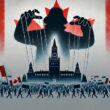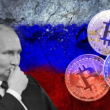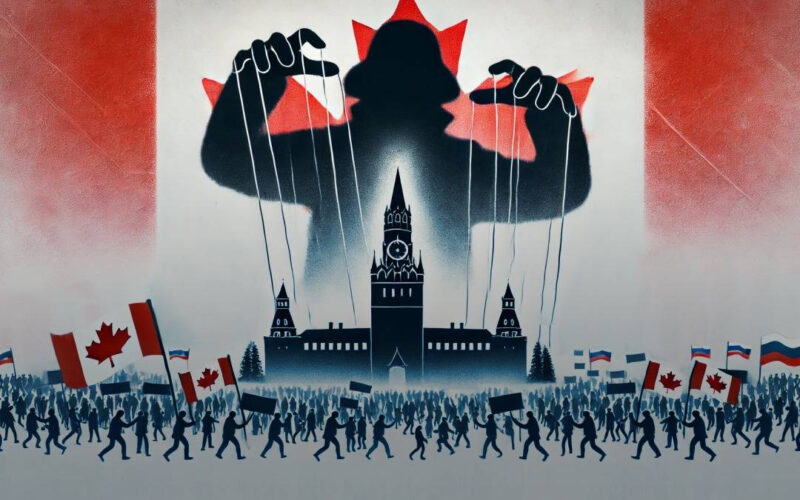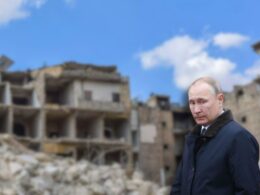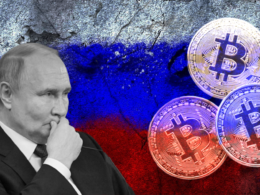Canadian far-left activists are being manipulated by the Kremlin, which uses them to advance its geopolitical interests and destabilize Western democracies. Source: Macdonald-Laurier Institute.
According to research by journalist and political analyst Marcus Kolga, far-left groups facilitate Russian disinformation, raising questions about Canada’s national security. Their actions often involve spreading narratives aligned with the ideology of “fighting for justice,” while in reality strengthening the Kremlin’s position on the international stage.
In November, protests against NATO and Israel were held in Montreal, organized by local far-left groups. Protesters damaged property, blocked streets, and chanted slogans mirroring key narratives promoted by Russia and Iran. The demonstrations featured flags of Russia, the Palestinian Authority, the Communist Party of Canada, and banners representing Russian-occupied territories of Ukraine.
In Canada, far-left groups often act as either a mouthpiece or a conduit for propagandist messaging. These messages include promoting Russian narratives about “peace negotiations,” and “anti-militarism,” which reflect key points of Kremlin propaganda.
It is noted that the Kremlin’s use of far-left movements is not new. These connections trace back to the Stalinist era, when the Soviet Union actively collaborated with communist organizations in Canada. Today, Moscow continues this practice, allocating billions of rubles for influence operations, including support for far-left activists, journalists, and analysts through institutions like the Valdai Club and the Russian International Affairs Council.
During the protests in Montreal, some participants were observed using Russian phrases, which experts believe may indicate the presence of organized groups linked to Russia. These events raise questions about the role of the Russian consulate in Montreal, known for its active intelligence operations.
In recent years, Canadian far-left activists critical of NATO, Israel, and Ukraine have frequently traveled to Russia, participating in conferences and meetings with Kremlin officials. Their rhetoric aligns with the Kremlin’s goals of weakening Western democracies and undermining alliances.
Particular attention should be given to the far-left narrative about the war in Ukraine. Some far-left groups advocate for lifting sanctions on Russia, despite its full-scale war against Ukraine. They frame this as part of an “anti-imperialist” movement, but such statements align with official Kremlin positions. These actions undermine international support for Ukraine and weaken global efforts to counter Russian aggression. Additionally, propaganda from these groups often portrays the Ukrainian government in a negative light, manipulating facts and distorting reality.
For the Kremlin, this issue is strategic. Ukraine represents a key element in countering Russian expansion, and any attempt to undermine support for Ukraine in the West is a valuable achievement for Russian intelligence services. Leveraging far-left groups in Canada for such operations becomes an effective tool of influence.
Ignoring these connections makes Canada vulnerable to foreign interference. Russia’s strategy is multifaceted: the Kremlin funds media outlets, supports ideological extremes, and uses social movements to undermine democratic institutions.
By recognizing and addressing these threats, Canada can better protect its democracy and uphold the values that define its society.

